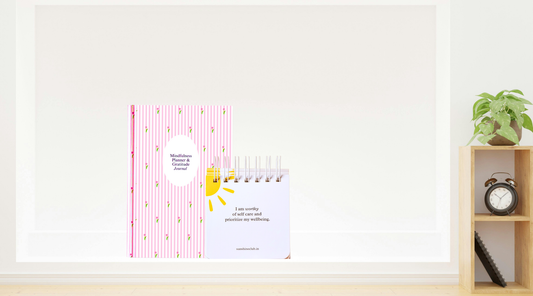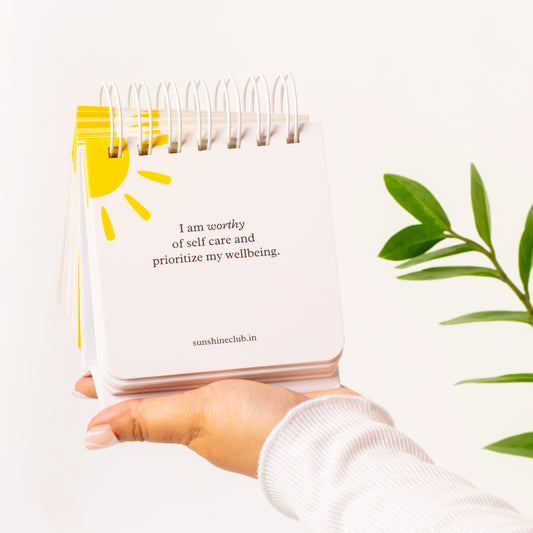
How journaling can help you during hard times
Share
Introduction: Journaling as Emotional Therapy
In difficult moments, our minds often spiral with worry, fear, and overthinking. Journaling for mental health offers a proven way to calm those thoughts. It’s more than just writing- it’s a form of self-therapy that helps you release emotions, gain clarity, and reconnect with yourself.
When you put your thoughts into words, your brain processes them differently. This practice brings awareness, acceptance, and eventually, emotional relief. That’s why mindfulness journaling is one of the top self-care habits for emotional balance and stress relief.
1. Helps You Release Emotional Tension
When emotions stay bottled up, they turn into mental clutter. Writing them down clears space in your mind. This process, known as expressive writing, allows your emotions to flow freely and helps lower cortisol (the stress hormone).
Prompt idea:“What’s been weighing on my heart lately — and what can I let go of today?”
By releasing thoughts onto paper, you make room for calm, clarity, and emotional healing.
2. Builds Self-Awareness and Mindfulness
Self-reflection journaling gives you a chance to slow down and notice your thoughts without judgment. You start to understand what triggers your emotions, what drains your energy, and what truly brings peace.
The more self-aware you become, the easier it is to break unhealthy patterns and build habits that support your wellbeing. Journaling becomes a mirror that helps you see yourself clearly — not through stress or fear, but through awareness and compassion.
3. Improves Mental Health and Resilience
Research shows that people who journal regularly experience lower anxiety, better mood regulation, and greater emotional resilience. Journaling for mental health helps you process difficult emotions safely, giving your mind structure when life feels chaotic.
Each entry you write becomes proof of your strength — a reminder that you can handle what life brings, one page at a time.
4. Tracks Your Healing and Growth
During hard times, progress can feel invisible. But when you keep a journal, you can literally see your growth on paper. Reading past entries shows how your thoughts, reactions, and mindset have evolved.
Try gratitude-based journaling prompts such as:
“What small thing made me smile today?”
“How have I grown through this challenge?”
These reflections shift your focus from pain to progress, helping you celebrate even the smallest wins.
5. Restores Hope and Direction
In moments of doubt, journaling helps you reconnect with hope and purpose. It reminds you that your story isn’t defined by this chapter — it’s still unfolding. Manifestation journaling combines writing with visualisation, helping you focus on what’s possible instead of what’s lost.
Try affirmations like: “I trust that this moment is shaping me into someone stronger.”
By turning intention into words, you turn struggle into self-belief.
Writing Your Way to Healing
Journaling during hard times is not about perfection — it’s about presence. Every word you write brings you closer to understanding yourself, healing your emotions, and finding peace within chaos. Over time, your journal becomes a companion — a witness to your growth, strength, and resilience.
So next time life feels heavy, grab your pen. Let your thoughts flow. Healing begins with one honest page.








